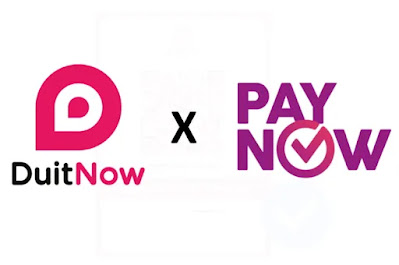Year: 2023
-
What it Means for the Future Cardano’s Decentralization Progress
Cardano (ADA) has been making significant strides in decentralization as the percentage of ADA supply controlled by whales has decreased to around 8% of the total supply. This is a significant achievement for the digital asset, making it one of the most decentralized cryptocurrencies in the top 10 market. As the distribution of ADA becomes more dispersed, the cryptocurrency is likely to become more resistant to manipulation and maintain a healthy, diverse ecosystem of stakeholders.Despite these positive developments, Cardano has faced market challenges and has been struggling to regain its recent uptrend. The downtrend in the volume profile could indicate a potential reversal, which may be attributed to the broader cryptocurrency market’s recent volatility. Additionally, some investors may still be skeptical about Cardano’s long-term viability, mainly due to the project’s academic approach to implementing newly emerged solutions.However, it is essential to note that Cardano’s progress in decentralization and innovative technologies is a valuable asset in the long run. As the cryptocurrency space continues to evolve and mature, the project’s dedication to creating a more inclusive financial system is admirable. Cardano’s core principles of decentralization and innovation remain strong, which could prove to be a valuable investment in the future.Overall, Cardano’s progress in decentralization and the distribution of ADA among holders has significant implications for the future of the cryptocurrency. As it becomes more decentralized and resistant to manipulation, Cardano could emerge as a leader in the cryptocurrency market. While market challenges may persist, the project’s dedication to creating an inclusive financial system through innovation and decentralization is a promising sign for the future of the blockchain industry. -
Trust Wallet Discloses Vulnerability in Open-Source Library
Trust Wallet, a cryptocurrency wallet owned by Binance, recently disclosed a WebAssembly vulnerability in an open-source library that affected new wallet addresses generated between November 14 and 23, 2022, by its Browser Extension. The company fixed the vulnerability within one day of verifying the bug bounty report.According to Trust Wallet, the vulnerability was due to a bug in the WebAssembly module that generated public keys for new wallet addresses. The vulnerability could have allowed an attacker to generate a private key for a wallet address that did not belong to them. This means that attackers could potentially gain access to wallets and steal funds.Trust Wallet stated that it was not aware of any instances where attackers exploited the vulnerability. However, as a precautionary measure, Trust Wallet urged all users who generated new wallet addresses using the Browser Extension during the affected period to transfer their funds to a new wallet address.In addition, Trust Wallet announced that it would reimburse users who lost funds due to this vulnerability. The company reimbursed approximately $170,000 USD worth of cryptocurrency to affected users.This incident highlights the importance of open-source libraries and the need for rigorous security measures in cryptocurrency wallets. Trust Wallet’s prompt response to the vulnerability and quick fix of the issue are commendable, as is their commitment to reimbursing affected users.Trust Wallet also stated that it will continue to invest in security measures to prevent similar vulnerabilities in the future. It is encouraging to see companies take security seriously and prioritize the safety of their users’ funds.Cryptocurrency users should remain vigilant and take necessary precautions to protect their funds, such as using strong passwords and enabling two-factor authentication. It is important to stay informed about potential vulnerabilities and updates to software and to always use trusted and secure platforms for storing and trading cryptocurrencies. -
Win Extra Duit Raya with AcerPure Malaysia’s Social Media Contest!
Are you looking for an opportunity to earn some extra cash this Raya season? Look no further than AcerPure Malaysia’s social media pages, where lucky winners stand a chance to receive an additional RM20 straight in their TnG wallet!To participate in the contest, all you need to do is follow three simple steps listed on their social media pages. And don’t worry if you don’t know the answer to the contest question, because AcerPure has provided a hint on their website.The contest ends on Monday, 24th April, so hurry up and follow their super easy contest rules before time runs out! Don’t forget to set a reminder for Tuesday, 25th April, at 11 am on the official AcerPure Malaysia social media pages to see if you’re one of the lucky seven winners.By participating in this contest, you not only stand a chance to win some extra duit Raya but also get to know more about AcerPure’s products and services. So what are you waiting for? Head over to their social media pages now and increase your chances of winning!https://acerpure.com/my/ -
Singapore’s First Execution in Six Months: Controversy over the Death Penalty Continues
In a world where many countries have abolished the death penalty, Singapore remains one of the few that still uses it, with some of the world’s toughest anti-narcotics laws. The recent case of Tangaraju Suppiah, a Singaporean man scheduled to be hanged next week for conspiring to smuggle a kilogram of cannabis, has once again brought this controversial issue to the forefront.While Singapore argues that the death penalty is an effective deterrent against drug trafficking, rights groups such as Amnesty International strongly oppose it, calling it “extremely cruel” and a violation of international law. In fact, in many parts of the world, including neighboring Thailand, cannabis has been decriminalized, with authorities abandoning prison sentences.What is particularly troubling about Tangaraju’s case is that he was convicted of “abetting by engaging in a conspiracy to traffic” cannabis, even though he never actually handled the drugs. Moreover, he was questioned by the police without legal counsel and was allegedly denied a Tamil interpreter, raising concerns about the fairness of his trial.Singapore resumed execution by hanging in March 2022, after a hiatus of more than two years. Since then, eleven executions have been carried out, all for drug offences. Among those hanged was Nagaenthran K. Dharmalingam, whose execution sparked a global outcry, including from the United Nations and British tycoon Richard Branson, because he was deemed to have a mental disability.The controversy over the death penalty continues to rage on, with many questioning its effectiveness as a deterrent and its compatibility with international human rights law. As the world debates this issue, Tangaraju’s fate hangs in the balance, a stark reminder of the high stakes involved in the war against drugs. -
Hong Kong Court Recognizes Crypto as Property in Gatecoin Case
Recently, a Hong Kong court has recognized cryptocurrency as property “capable of being held on trust” in a case involving the defunct crypto exchange Gatecoin. This marks a significant legal recognition of cryptocurrencies as property in the jurisdiction.
The decision by the court is in line with other common law jurisdictions like the US, where the Internal Revenue Service treats cryptocurrency as property for tax purposes. Additionally, a government-funded law commission in the UK also found that crypto can be classified as a new type of property under existing laws in England and Wales.
The case involving Gatecoin arose in 2019 when the Hong Kong-based crypto exchange announced its closure and liquidation following an attempt to recover disputed funds from a former payment services provider. The liquidators sought directions from the court on whether the crypto held by Gatecoin should be treated as property held on trust or made available to the general body of creditors if no trust existed.
The ruling is significant because it provides a legal framework for the treatment of cryptocurrencies in insolvency proceedings and could pave the way for greater legal recognition of crypto assets in Hong Kong. It is a positive development for the cryptocurrency industry, which has been grappling with legal and regulatory uncertainties.
The recognition of cryptocurrency as property by the Hong Kong court is a welcome development that could have far-reaching implications for the treatment of crypto assets in the country. This ruling provides greater legal clarity and certainty, which is crucial for the growth and development of the cryptocurrency industry.
-
Starbucks Launches NFT Collection
Starbucks, one of the world’s largest coffee chains, is stepping into the world of non-fungible tokens (NFTs) with its latest release, The First Store Collection. The collection comprises 5,000 NFTs in the form of digital stamps that were launched on the Nifty Gateway platform and minted on the Ethereum scaling network Polygon.Priced at $100 each, the NFTs are selling out fast, just like Starbucks’ previous NFT drop in March that sold out within minutes. The purchase of each NFT also earns buyers 1,500 points towards rewards within the Starbucks Odyssey app, launched in 2022.The move into NFTs marks Starbucks’ entry into web3 technology, recognizing its potential to tap into new user segments and revenue streams. By integrating NFTs and blockchain technology, Starbucks is creating a new way for customers to engage with the brand and its rewards program.The First Store Collection is a tribute to the company’s first-ever store located in Seattle’s Pike Place Market. The NFTs feature original artwork that depicts the iconic storefront and pays homage to Starbucks’ rich history.As more and more companies experiment with NFTs, Starbucks’ entry into the market is a significant move that showcases the mainstream adoption of this new technology. With Starbucks leading the way, we can expect more brands to follow suit and explore the endless possibilities of NFTs. -
Ethereum’s Shanghai Upgrade Boosts Institutional Interest in ETH Futures Trading
Ethereum, the world’s second-largest cryptocurrency by market value, recently implemented the highly anticipated Shapella hard fork, also known as the Shanghai upgrade, on April 12. This update has reduced the risk of staking the blockchain’s native token, ether (ETH), by allowing withdrawals of locked coins at will. This pivotal event has galvanized institutional interest in ETH futures trading.
Since April 10, the number of active ether futures contracts trading on the Chicago Mercantile Exchange (CME) has risen by 39% to 6,248, according to official data. In U.S. dollar terms, open interest has increased by over 70% to $633 million. Coinglass data also shows that the tally reached a 12-month high of $675 million on Friday.
Each futures contract has a value of 50 ETH and is quoted in US dollars per 1 ether. The recent surge in institutional interest in ETH futures trading suggests that more investors are willing to bet on the potential growth of Ethereum and its native token. This increased demand for futures contracts can also be attributed to the lowered risk of staking ETH due to the successful implementation of the Shanghai upgrade.
The successful implementation of the Shapella hard fork has not only reduced the risk of staking ETH but has also boosted institutional interest in ETH futures trading. This is a positive development for Ethereum and its native token, as it signals growing confidence in the future growth of the cryptocurrency market.
-
Netflix adds value for subscribers with paid account sharing and ad-supported tiers
Netflix is making moves to add value for current subscribers and better monetize its existing membership base. The company recently rolled out paid account sharing and ad-supported tiers, as it aims to grow its subscriber base and stay ahead of the competition.
In Q1 of 2023, Netflix added 1.8 million new subscribers, a significant improvement from the comparable period in 2022, when the company shed 200,000 subscribers. This growth is largely attributed to the company’s efforts to provide more value for its subscribers.
By offering paid account sharing, Netflix is allowing its subscribers to share their accounts with friends and family for a fee, while also better controlling access to its content. Meanwhile, the addition of ad-supported tiers provides another option for viewers who want to access content at a lower price point.
According to CFO Spencer Neumann, there is a huge market opportunity for Netflix. There are over 1 billion broadband households and roughly 450 million to 500 million connected TV households, while Netflix has roughly 230 million paying members as of now. This suggests that there is still room for significant growth in the streaming market.
While Netflix’s moves to add value for its subscribers are commendable, the company also faces challenges in maintaining the quality and relevance of its content offerings. With increasing competition from other streaming services and the ever-changing tastes of viewers, Netflix will need to continue to innovate and evolve in order to remain a leader in the industry.
-
Risks of Using Generative Artificial Intelligence Tools for Confidential Information
As companies increasingly turn to generative artificial intelligence (AI) tools like ChatGPT for their customer service and content creation needs, a new report has warned about the potential risks involved. According to an Israel-based venture firm, Team8, the widespread adoption of new AI chatbots and writing tools could leave companies vulnerable to data leaks and lawsuits.
One of the major fears associated with the use of AI chatbots is that hackers could exploit them to gain access to sensitive corporate information or perform actions against the company. This risk is particularly acute for chatbots that are not built with proper security protocols in place. Companies may be inadvertently exposing confidential customer data and trade secrets to potential data breaches.
Furthermore, there are concerns that confidential information fed into the chatbots now could be used by AI companies in the future. As these companies collect more data, they could potentially use this information for other purposes, which may not be in line with the original intent of the data sharing.
Despite these risks, the benefits of using AI chatbots and writing tools cannot be ignored. These tools can provide significant improvements in efficiency and productivity, enabling companies to handle large volumes of customer queries and create content at a faster pace than ever before. However, it is crucial for companies to approach the adoption of these tools with caution and implement appropriate security measures to ensure the protection of confidential information.
The use of generative artificial intelligence tools like ChatGPT can offer significant benefits for companies. However, it is important to recognize and mitigate the potential risks associated with their use, including data leaks, lawsuits, and the exploitation of chatbots by hackers. By implementing proper security protocols, companies can ensure that the benefits of these tools are enjoyed without compromising the protection of confidential information.
-
Cashless Payments on the Rise in Malaysia with Cross-border QR Code Payment Linkage
Cashless payments have been gaining popularity in Malaysia, and a recent development is set to boost this trend further. Singapore and Malaysia have launched a cross-border QR code payment linkage that is expected to increase the number of cashless transactions between the two countries.
This new payment system allows users to make instant transactions via their mobile phones. It is a more efficient payment method for smaller businesses as they can receive payments immediately without the need to wait for the funds to be transferred to their accounts.
The QR code payment option also benefits customers who can easily make small transactions without worrying about carrying excessive amounts of cash. With this payment system, they can simply scan the QR code and pay even for transactions involving just a few ringgit.
This development is a significant step forward in the digital payment landscape of both countries, and it is expected to promote economic growth by making cross-border transactions more accessible and convenient. It will also pave the way for other countries in the region to develop similar cross-border payment systems.









